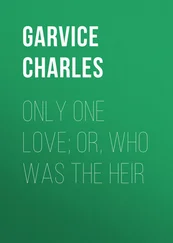Charles Baxter
The Feast of Love
Yes, there were times when I forgot not only who I was, but that I was, forgot to be.
— SAMUEL BECKETT, Molloy
THE MAN — ME, this pale being, no one else, it seems — wakes in fright, tangled up in the sheets.
The darkened room, the half-closed doors of the closet and the slender pine-slatted lamp on the bedside table: I don’t recognize them. On the opposite side of the room, the streetlight’s distant luminance coating the window shade has an eerie unwelcome glow. None of these previously familiar objects have any familiarity now. What’s worse, I cannot remember or recognize myself. I sit up in bed — actually, I lurch in mild sleepy terror toward the vertical. There’s a demon here, one of the unnamed ones, the demon of erasure and forgetting. I can’t manage my way through this feeling because my mind isn’t working, and because it, the flesh in which I’m housed, hasn’t yet become me.
Looking into the darkness, I have optical floaters: there, on the opposite wall, are gears turning separately and then moving closer to one another until their cogs start to mesh and rotate in unison.
Then I feel her hand on my back. She’s accustomed by now to my night amnesias, and with what has become an almost automatic response, she reaches up sleepily from her side of the bed and touches me between the shoulder blades. In this manner the world’s objects slip back into their fixed positions.
“Charlie,” she says. Although I have not recognized myself, apparently I recognize her: her hand, her voice, even the slight saltine-cracker scent of her body as it rises out of sleep. I turn toward her and hold her in my arms, trying to get my heart rate under control. She puts her hand to my chest. “You’ve been dreaming,” she says. “It’s only a bad dream.” Then she says, half-asleep again, “You have bad dreams,” she yawns, “because you don’t…” Before she can finish the sentence, she descends back into sleep.
I get up and walk to the study. I have been advised to take a set of steps as a remedy. I have “identity lapses,” as the doctor is pleased to call them. I have not found this clinical phrase in any book. I think he made it up. Whatever they are called, these lapses lead to physical side effects: my heart is still thumping, and I can hardly sit or lie still.
I write my name, Charles Baxter, my address, the county, and the state in which I live. I concoct a word that doesn’t exist in our language but still might have a meaning or should have one: glimmerless. I am glimmerless. I write down the word next to my name.
ON THE FIRST FLOOR near the foot of the stairs, we have placed on the wall an antique mirror so old that it can’t reflect anything anymore. Its surface, worn down to nubbled grainy gray stubs, has lost one of its dimensions. Like me, it’s glimmerless. You can’t see into it now, just past it. Depth has been replaced by texture. This mirror gives back nothing and makes no productive claim upon anyone. The mirror has been so completely worn away that you have to learn to live with what it refuses to do. That’s its beauty.
I have put on jeans, a shirt, shoes. I will take a walk. I glide past the nonmirroring mirror, unseen, thinking myself a vampire who soaks up essences other than blood. I go outside to Woodland Drive and saunter to the end of the block onto a large vacant lot. Here I am, a mere neighbor, somnambulating, harmless, no longer a menace to myself or to anyone else, and, stage by stage, feeling calmer now that I am outside.
As all the neighbors know, no house will ever be built on the ground where I am standing because of subsurface problems with water drainage. In the flatlands of Michigan the water stays put. The storm sewers have proven to be inadequate, with the result that this property, at the base of the hill on which our street was laid, always floods following thunderstorms and stays wet for weeks. The neighborhood kids love it. After rains they shriek their way to the puddles.
ABOVE ME in the clear night sky, the moon, Earth’s mad companion, is belting out show tunes. A Rodgers and Hart medley, this is, including “Where or When.” The moon has a good baritone voice. No: someone from down the block has an audio system on. Apparently I am still quite sleepy and disoriented. The moon, it seems, is not singing after all.
I turn away from the vacant lot and head east along its edge, taking the sidewalk that leads to the path into what is called Pioneer Woods. These woods border the houses on my street. I know the path by heart. I have taken walks on this path almost every day for the last twenty years. Our dog, Tasha, walks through here as mechanically as I do except when she sees a squirrel. In the moonlight the path that I am following has the appearance of the tunnel that Beauty walks through to get to the Beast, and though I cannot see what lies at the other end of the tunnel, I do not need to see it. I could walk it blind.
ON THE PATH NOW, urged leftward toward a stand of maples, I hear the sound of droplets falling through the leaves. It can’t be raining. There are still stars visible intermittently overhead. No: here are the gypsy moths, still in their caterpillar form, chewing at the maple and serviceberry leaves, devouring our neighborhood forest leaf by leaf. Night gives them no rest. The woods have been infested with them, and during the day the sun shines through these trees as if spring were here, bare stunned nubs of gnawed and nibbled leaves casting almost no shade on the ground, where the altered soil chemistry, thanks to the caterpillars’ leavings, has killed most of the seedlings, leaving only disagreeably enlarged thorny and deep-rooted thistles, horror-movie phantasm vegetation with deep root systems. The trees are coated, studded, with caterpillars, their bare trunks hairy and squirming. I can barely see them but can hear their every scrape and crawl.
The city has sprayed this forest with Bacillus thuringiensis, two words I love to say to myself, and the bacillus has killed some of these pests; their bodies lie on the path, where my seemingly adhesive shoes pick them up. I can feel them under my soles in the dark as I walk, squirming semiliquid life. Squish, squoosh. And in my night confusion it is as if I can hear the leaves being gnawed, the forest being eaten alive, shred by shred. I cannot bear it. They are not mild, these moths. Their appetites are blindingly voracious, obsessive. An acquaintance has told me that the Navahos refer to someone with an emotional illness as “moth crazy.”
ON THE OTHER SIDE of the woods I come out onto the edge of a street, Stadium Boulevard, and walk down a slope toward the corner, where a stoplight is blinking red in two directions. I turn east and head toward the University of Michigan football stadium, the largest college football stadium in the country. The greater part of it was excavated below ground; only a small part of its steel and concrete structure is visible from here, the corner of Stadium and Main, just east of Pioneer High School. Cars pass occasionally on the street, their drivers hunched over, occasionally glancing at me in a fearful or predatory manner. Two teenagers out here are skateboarding in the dark, clattering over the pavement, doing their risky and amazing ankle-busting curb jumping. They grunt and holler. Both white, they have fashioned Rasta-wear for themselves, dreads and oversized unbuttoned vests over bare skin. I check my watch. It is 1:30. I stop to make sure that no patrol cars are passing and then make my way through the turnstiles. The university has planned to build an enormous iron fence around this place, but it’s not here yet. I am trespassing now and subject to arrest. After entering the tunneled walkway of Gate 19, I find myself at the south end zone, in the kingdom of football.
Читать дальше
Конец ознакомительного отрывка
Купить книгу












